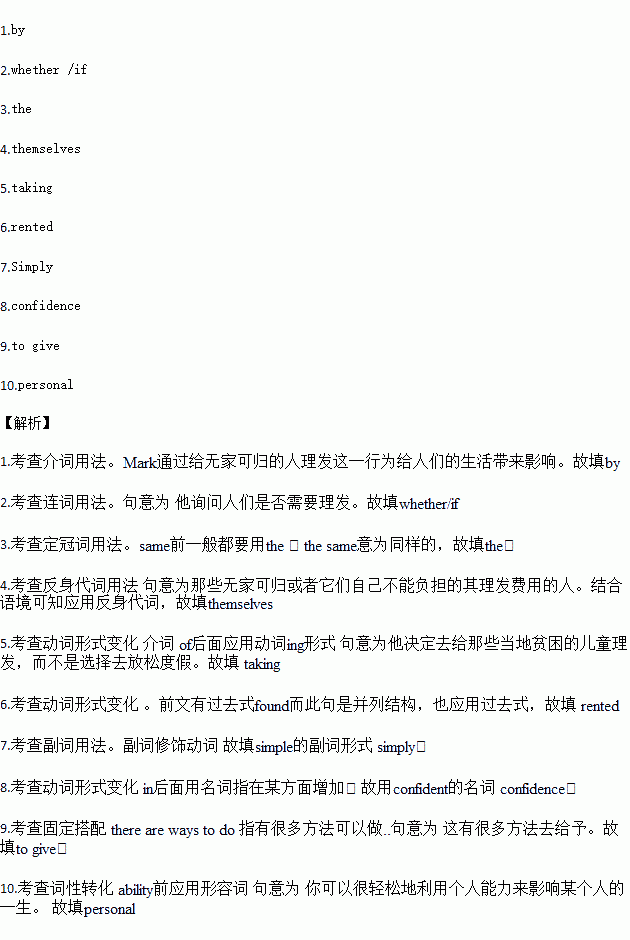题目内容
Each week New York-based hairstylist Mark Bustos tries to make a small difference in people’s lives 1. giving haircuts to homeless people.
During the week, Mark Bustos works in his high-class salon, but each Sunday, he walks around the city asking people 2. they’d like a haircut. He then gives them a stylish haircut -- 3. same kind he would give to any paying customers, except that these are done for free for those who are homeless or cannot afford a haircut 4.(them).
Mark’s work began in 2012 when visiting family in the Philippines. Instead of just 5.(take) a typical, relaxing vacation, he decided to give poor local children haircuts. “I felt so happy doing it that I’ve continued since returning,” Mark explains.
Changing someone’s appearance can have a huge impact on their life. Remember the homeless retired soldier who received a make-over? He found a job, 6.(rent) a house and quit drinking alcohol afterwards. 7.(simple) change how a person looks and give them a huge increase in 8. (confident).
Mark Bustos proves that there are many ways 9.(give), and that you can easily use your 10.(person) abilities to make a difference in somebody’s life.
 天天向上一本好卷系列答案
天天向上一本好卷系列答案 小学生10分钟应用题系列答案
小学生10分钟应用题系列答案

 new modular structures the scientists developed could be manufactured quickly in mass quantities and then installed by teams of small robots. These modular structures also can be disassembled more easily, making repairs simpler.
new modular structures the scientists developed could be manufactured quickly in mass quantities and then installed by teams of small robots. These modular structures also can be disassembled more easily, making repairs simpler. wind?tunnel tests of these wings.
wind?tunnel tests of these wings.